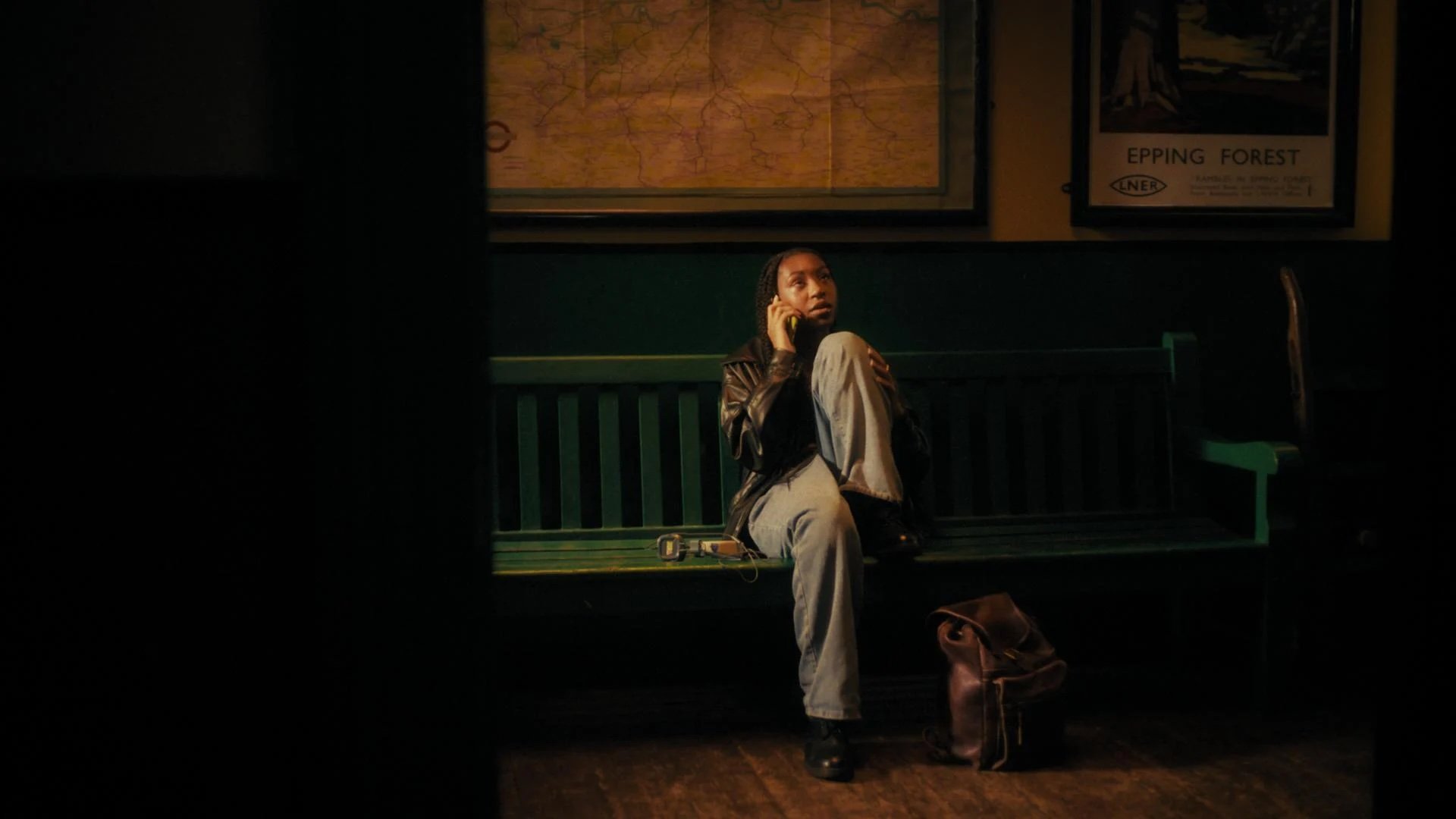It’s Not All about Identity: Writer and Director Chioma Ejimofo on Filmmaking in Your 20s
Getting into the creative industries feels particularly draining at the moment. At times even getting a foot in the door can feel like attempting to reach an alternate reality when you don’t come from a family of industry connections. Nurturing a mentality of passion to get into a competitive industry you have no connections to (especially film where nepotism is rife) alongside obvious hard work, sacrifice and sometimes not letting a NO be final is necessary to keep making steps towards your dream. When social media often only highlights the stage when your work is done, you rarely get to explore the process, rejections, and finding your voice amidst your doubts and the prevailing economic struggles that come with being in your 20s.
Image credit Ai Narapol
Despite this continuous existential uncertainty that pursuing careers the arts ignite, the rise in alternative funding bodies and creative opportunities reflect glimmers of hope for a changing approach to the industry for many of London’s up and coming filmmakers. One name to keep a look out for is writer/director Chioma Ejimofo. A filmmaker from London, her recent short film Goodbye Train was picked up by Roundhouse and in 2023 won the Emerging Filmmaker Award from the Wiggin Foundation and in 2024 was selected for the BIFA accredited festival Woman X Film. Last winter it went on to its US debut, screening in New York at the Urbanworld festival. Speaking with Chi at Rio cinema we discussed her journey and experiences as a filmmaker living in London, navigating 20s and the current state of the industry.
Image credit IMDB
So, what drew you to filmmaking and how did you figure out that making movies is what you wanted to do?
Well…when I was little, I remember wanting to be a nurse, (that was never going to happen, it was because my dad’s a doctor!) Then I wanted to be an artist, then from falling in love with Studio Ghibli films I wanted to be an animator. That was an early memory of film for me though growing up I would write scripts on my parent’s printer paper! There’s a video my dad took when I was a toddler. I was grabbing his camera and crying to try and hold it. It feels like I always had an interest in it (creating). In school I would film stuff with my sister, I always wanted to make little things. At university I would make videos on YouTube on my DSLR and I loved it! I was desperate for the moment I could put something with narrative together.
What films are some of your all-time favourites (and that inspire you)?
Sofia Coppola’s virgin suicides remain close to the top for me! Essentially films that explore misunderstood women, like Giuseppe Tornatore’s Malena-Marlene, these films explore women trying to make it…how they view themselves, how the world views them. I like exploring womanhood and these female feelings.
Do you feel like films need to have a clear message or social impact, I mean what do you think makes films resonate with audiences?
I don’t mind films that are kinda vague or don’t have a fully concrete ending. Films do need to feel confident in what they’re trying to say, that’s what matters. You can feel when a film is working around ideas, and I hate when there are subplots that start to feel interesting that get left behind. It doesn’t need a clear or even political message, but as a director you have to find why you’re attempting to say what you’re saying, and then say it!
Your films are very poetic and emotionally resonating stories, is that always intentional?
I think there’s this natural feeling. You find it in real life, while travelling home, in periods in life where you feel things are changing but you don’t have a word for it. I like to observe those emotions and display how I felt in those moments in life. When living those moments where you don’t hear or feel something clearly in films those emotions can be captured and understood without clearly stating them. I’m keen to capture feelings, it comes naturally.
Many filmmakers say things along the lines of wanting to make films because they feel the stories they want to see are missing (especially among diaspora filmmakers) . Do you relate to that idea at all?
Growing up on Sofia Coppola and Andrea Arnold, I’m grateful for their films showing women who are trying to find themselves. Though it would be nice to see more women who look like me going through those things, emotions, growing pains. I want to see more of that.
Especially with where the film industry is at currently. Do you feel pressure as a black woman to need to make a type of film?
It’s something I’ve spoken to friends about because it gets kinda exhausting. I want to make what I want to make, but with things like funding, it often feels like you have to attach yourself to your films. Putting my black womanhood, trauma, or whatever else as the main part of my storytelling can feel expected. In an interview for Goodbye train someone once said, “I can see and tell that that’s you in that story!” It's nice but it’s also vulnerable. It’s some of me but not all of me, it’s tough. There’s so many films I love about womanhood and adolescence. I want to be included in that, I don’t want it to always be seen as a “black take”. Men often get away with making pretty films with less need for a message, sometimes I also want to just make a nice world.
Image credit Chioma Ejimofo
How did making Goodbye train come about?
In 2022 I’d been working in TV in France. I came back to London freshly wounded from a breakup and kinda locked myself away a bit to write. I told myself I wouldn’t leave the room until I finished a first draft. I reached out to some producer friends; we submitted to funding, big ones like BFI (which was unsuccessful). By the end of 2022 I submitted to Roundhouse and was rejected. I was sad because I kept facing these rejections for something I believed in. I remember saying if this doesn’t get made I might just pack it in for a bit. I decided to apply to roundhouse again after taking Goodbye Train to a script consultant. This time I got an interview, making sure I was serious and could handle the idea. When you’re waiting to hear back imposter syndrome kicks in, I had to detach myself from the idea and then I remember being in my room getting the email and the thought “Wow, I’m making the film”.
How do you deal with the setbacks and rejections to ideas you believe are worth making?
It did get to me a bit. You put a lot of work in, and you think you’re ready, it sucks to hear no. But it’s very natural to sulk and be angry about it for a bit. I’m happy I got back up and when I got a yes, I was actually ready to do it when I did. I had the team and support I needed, everything fell into place. When you speak to festival programmers you hear how it’s not always a reflection of your film. Some festivals get maybe 6000 and select 200 films. When I got the email to say I had been selected for a festival in New York, it was so exciting. My film played on my birthday on the biggest screen I’d seen. I’d never been to a cinema in America, it was so special!
How do you feel the film industry expects women to make their movies?
There's a lot of pressure on women in film to get it right the first time and I want to be able to make mistakes. I got into moments of panic while making Goodbye train, it’s an invisible pressure. When there’s men that make basically short remakes of other films and they get away with it as like a homage, it’s frustrating. Sometimes I want to make a soft film that doesn’t say “a lot”. I’m not always struggling to find my identity, like sometimes I’m actually not! So, my films as a woman don’t need to be about identity struggle.
Do you feel a shift in the industry towards more young filmmakers getting their work out there?
Now there are definitely so many younger filmmakers because we have access to so many big platforms like Nowness, even things like TikTok (can open doors).
How do you balance needing to make money in your 20s in London, often through your work?
I don’t want to commodify everything I do! Filmmaking is something I love to do but the reality living in London in your 20s is you have to juggle things and figure it out. I have to remind myself it will happen when it happens (getting films made). Sometimes I think with ideas, changing a narrative element will help me get funding but you can’t think like that! With Goodbye Train I was rejected at first, but I had to be patient. In the end it felt like it happened at the right time.
What’s next for you?
I was panicking a little after making Goodbye Train. I was nervous because I kept questioning if my next script wouldn’t resonate the same way. I do still feel the pressure. It’s a balancing act of allowing myself to write for myself and for my voice to be confident. I remember telling my sister lots of ideas I had. My sister is very honest and I’m very sensitive, so she’ll tell me straight – this is good, but needs more work. I was listening to Elijah fox on a train journey and the idea just came to me, I showed my sister, and she nodded. Then I had a kinda sign (from the universe) when shortly after I saw a statue of exactly what I needed to see from the script. I’m feeling confident about it but it’s a long process. When you’re the director wanting to create, you have to take time and enjoy the development process.
And lastly what kinds of films do you want to see more of for the rest of 2025?
More horror films, new unique films I’m tired of re-makes especially the live action ones, I don’t really watch them. I’m Looking for more black leads, fun indies and pretty things! And I’m excited to see the films from friends. 2024 felt like the time to start propelling and preparing things so there’s lots of exciting things to look forward to!
Image credit Chioma Ejimofo




